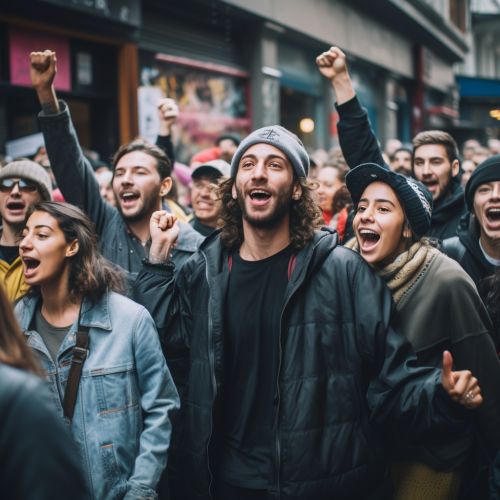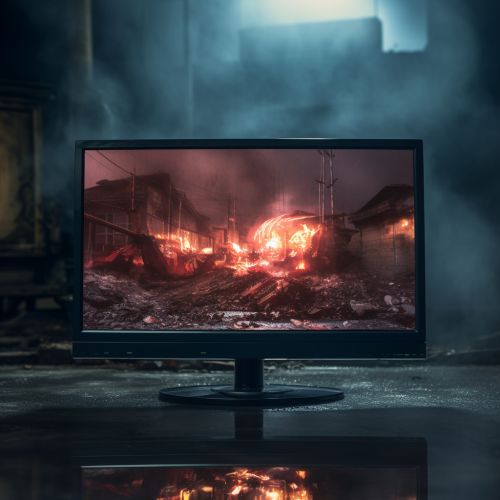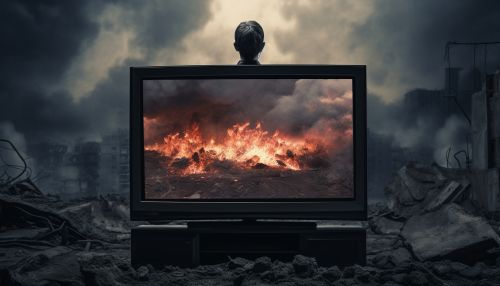Public Opinion
Definition and Overview
Public opinion refers to the collective attitudes or beliefs of the public about a particular issue or topic. It is a complex and multifaceted concept that is influenced by various factors, including cultural norms, personal experiences, and media exposure Public Opinion Theory. The study of public opinion aims to understand the formation, change, and impact of these collective attitudes on society and politics.
Historical Background
The concept of public opinion has its roots in ancient civilizations, where it was recognized that the collective views of the citizenry had a significant impact on the functioning of society. However, it was not until the 18th century Enlightenment period that the term "public opinion" was coined and began to be studied systematically. This was largely due to the rise of democracy and the increasing importance of the public's role in shaping societal and political outcomes History of Public Opinion.
Formation of Public Opinion
Public opinion is formed through a complex interplay of various factors. These include individual attitudes and beliefs, social and cultural norms, the influence of the media, and the role of political institutions and leaders.
Individual attitudes and beliefs are shaped by personal experiences and values. These can be influenced by factors such as education, socioeconomic status, and personal identity. Social and cultural norms also play a significant role in shaping public opinion. These norms reflect the shared values and beliefs of a society and can influence individual attitudes and beliefs Social Influence.
The media plays a crucial role in the formation of public opinion by shaping the information that individuals receive about various issues. This can influence their attitudes and beliefs, and ultimately, public opinion. Political institutions and leaders can also shape public opinion through their actions and policies Media Influence on Public Opinion.
Measurement of Public Opinion
Public opinion is typically measured through opinion polls, which involve asking a sample of the population about their views on a particular issue. These polls can provide valuable insights into the attitudes and beliefs of the public, but they also have limitations. For example, the accuracy of a poll can be affected by factors such as the wording of questions, the sample size, and the methodology used to collect responses Opinion Polls.
Impact of Public Opinion
Public opinion can have a significant impact on various aspects of society and politics. It can influence policy decisions, electoral outcomes, and the actions of political leaders. For example, politicians often consider public opinion when making policy decisions, and they may adjust their positions to align with the views of the public. Public opinion can also influence the outcome of elections, as voters are more likely to support candidates whose views align with their own Impact of Public Opinion on Politics.
Criticisms and Controversies
While public opinion is often seen as a reflection of the collective views of the public, it has also been criticized for being easily manipulated and not always representative of the public's true views. For example, the media can influence public opinion by selectively presenting information or framing issues in a certain way. Additionally, opinion polls can be biased due to factors such as the wording of questions or the sample size Criticisms of Public Opinion.
Conclusion
Public opinion is a complex and multifaceted concept that plays a crucial role in shaping societal and political outcomes. It is formed through a complex interplay of individual attitudes and beliefs, social and cultural norms, and the influence of the media and political institutions. Despite its limitations and criticisms, the study of public opinion provides valuable insights into the collective attitudes and beliefs of the public and their impact on society and politics.
See Also
References
1. "Public Opinion." Encyclopedia Britannica. https://www.britannica.com/topic/public-opinion 2. "The Formation of Public Opinion." Pew Research Center. https://www.pewresearch.org/methods/u-s-survey-research/the-formation-of-public-opinion/ 3. "How Media Influences Public Opinion." Journal of Communication. https://academic.oup.com/joc/article/42/2/70/4086104 4. "The Impact of Public Opinion on Policy." American Political Science Review. https://www.cambridge.org/core/journals/american-political-science-review/article/abs/impact-of-public-opinion-on-policy-a-review-of-an-agenda/3B9B2AB9C8AB7E3737B7F71A9F6B81F9












